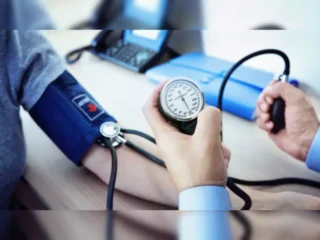New Delhi, 10 October, 2025: Mental health is just as crucial as physical health — and this World Mental Health Day (October 10) serves as a powerful reminder of that. While most discussions on mental health often focus on adults, children are equally vulnerable to depression. Unlike adults, however, kids may not have the language or awareness to express what they’re feeling, making it easy for their symptoms to go unnoticed or misunderstood.
According to mental health experts, early detection of depression in children can be life-changing, leading to timely intervention and better long-term outcomes. This article highlights 10 warning signs of depression in kids, the importance of early support, and what parents can do to help.
Why Talking About Childhood Depression Matters
Depression in children is often dismissed as “mood swings” or “just a phase.” But clinical data shows that childhood and adolescent depression are rising globally. Factors like academic pressure, bullying, social media, family conflicts, and even genetic predispositions are contributing to this surge.
Dr. R. Mehta, a child psychiatrist, explains: “When children feel persistently sad or hopeless, and these feelings start to affect their daily functioning, we need to recognize it as more than just a bad day. Ignoring the early signs can lead to worsening mental health in adolescence and adulthood.”
1. Persistent Sadness or Irritability
One of the most common signs of depression in children is a prolonged low mood. But unlike adults, children often show irritability more than sadness. If your child seems constantly on edge, gets upset over small issues, or withdraws easily, it may be more than just a “bad mood.”
- Lasting sadness for weeks or months
- Quick temper or emotional outbursts
- Expressing feelings of worthlessness or guilt
2. Withdrawal From Friends and Family
Children with depression often isolate themselves from their loved ones. They may:
- Avoid spending time with friends
- Stop participating in group activities they once enjoyed
- Prefer staying alone in their rooms
Social withdrawal is a red flag that should not be ignored. For kids, friendships and peer groups play a crucial role in emotional development — so any sudden or gradual disinterest can signal distress.
3. Loss of Interest in Hobbies or Play
Play is an integral part of childhood. A child who loses interest in their favorite games, sports, or creative activities may be struggling emotionally. Experts note:
- Decline in excitement or curiosity
- “Bored” responses to everything
- Avoidance of fun activities they previously loved
This lack of interest (anhedonia) is one of the core symptoms of depression in both children and adults.
4. Sudden Changes in Sleep Patterns
Sleep is a strong indicator of emotional health. A child with depression might:
- Struggle to fall asleep (insomnia)
- Sleep excessively (hypersomnia)
- Experience nightmares or restless sleep
Parents should pay close attention to sleep patterns, especially when they shift suddenly without any physical illness as an explanation.
5. Changes in Appetite and Eating Habits
Emotional distress can manifest physically through:
- Loss of appetite and weight loss
- Overeating or “comfort eating”
- Complaints of stomach aches or nausea
While appetite changes can occur for many reasons, when combined with other emotional signs, they could point toward depression.
6. Poor Concentration and Academic Decline
Depression can affect a child’s ability to focus, remember, and process information. Teachers are often the first to notice:
- Drop in grades or classroom performance
- Lack of interest in schoolwork
- Difficulty completing tasks or following instructions
These cognitive symptoms can sometimes be mistaken for laziness or learning difficulties, but they may actually reflect deeper emotional struggles.
7. Excessive Guilt or Negative Self-Talk
Children may start expressing:
- “I’m not good enough”
- “Everyone would be better off without me”
- “I can’t do anything right”
This self-blame or negative self-image is a serious indicator of underlying depression. Kids often internalize problems, believing they are the cause of every issue around them.
8. Unexplained Physical Complaints
Depression in children often shows up through the body rather than words. Common psychosomatic symptoms include:
- Frequent headaches
- Stomach pain without medical cause
- Fatigue or low energy
These symptoms persist despite normal physical check-ups. Emotional pain can be hard for kids to articulate, so their bodies speak for them.
9. Risky Behavior or Emotional Outbursts
Some children express depression through acting out:
- Aggression or irritability
- Reckless behavior or self-harm tendencies
- Getting into fights or conflicts
This is particularly common in older children or teenagers, where emotional pain translates into behavioral problems rather than sadness.
10. Talk or Thoughts About Death
This is one of the most serious warning signs. Even casual mentions like:
- “I wish I wasn’t here”
- “No one would care if I disappeared”
- Drawings or writings about death
…should be taken extremely seriously. depression in children can lead to suicidal ideation, and immediate professional help is essential if this occurs.
Why Kids Don’t Always Speak Up
Children may not fully understand what they’re feeling or may fear being misunderstood. Some may:
- Feel embarrassed or guilty
- Think their feelings are “not important”
- Believe they need to “be strong”
- Not want to worry their parents
That’s why parental observation and open communication are critical.
What Parents and Caregivers Can Do
1. Create a Safe Space to Talk
Encourage conversations about feelings without judgment. Phrases like “It’s okay to feel sad” can go a long way in helping kids open up.
2. Seek Professional Help Early
If symptoms persist for more than two weeks, consult a child psychologist or psychiatrist. Early therapy can make a huge difference.
3. Maintain Routines
Stable routines around meals, sleep, and activities can provide comfort and structure to children experiencing depression.
4. Encourage Physical Activity
Regular movement boosts mood-regulating chemicals like serotonin and dopamine, which can support emotional well-being.
5. Limit Screen Time and Monitor Social Media
Cyberbullying and comparison on social media platforms can worsen depressive symptoms. Instagram, TikTok, and other platforms can influence how kids perceive themselves.
6. Be Patient and Supportive
Healing from depression is not instant. Celebrate small victories and remind your child they are not alone.
When to Seek Emergency Help
If your child:
- Talks about death or self-harm
- Has sudden mood swings with aggression or withdrawal
- Refuses to eat or sleep for prolonged periods
…call emergency services or visit a hospital immediately. Depression in children is treatable, but urgent intervention can save lives.
Breaking the Stigma
For years, mental health in children has been overlooked in India and globally. But acknowledging childhood depression is not a weakness — it’s a step toward a healthier, more empathetic society. Schools, parents, and communities must work together to:
- Promote mental health awareness
- Train teachers to spot early warning signs
- Provide easy access to mental health care
Dr. Mehta emphasizes: “Just like we treat fever or asthma in children, depression too needs medical attention. Emotional well-being is health — not an afterthought.”
On this World Mental Health Day, let’s pledge to listen more carefully to our children. A moody or irritable child may not just be “acting out” — they may be struggling silently. Recognizing the warning signs early, providing support, and seeking professional help can change their entire future.
Childhood depression is real, but it is also treatable with compassion, awareness, and timely care.







